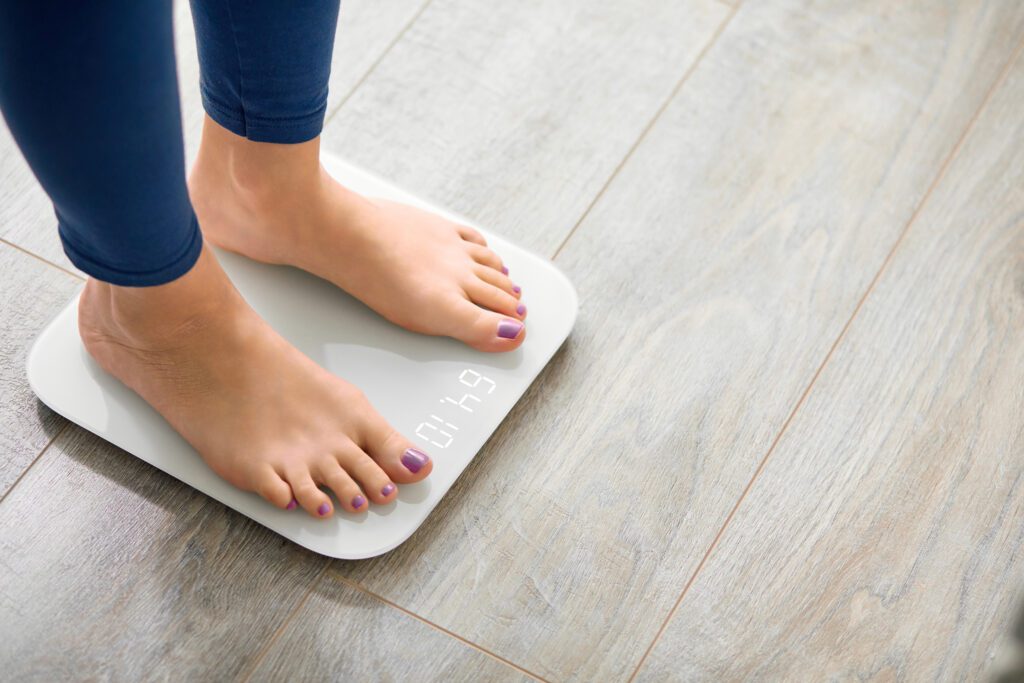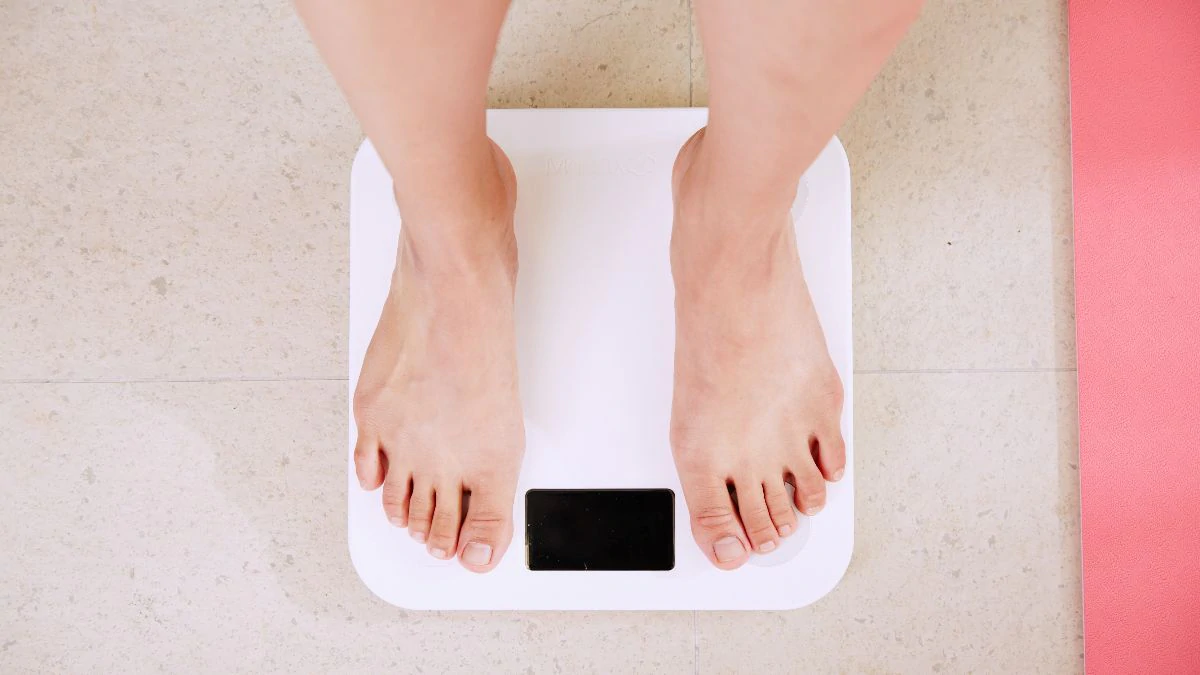Embarking on a weight management journey involves navigating through daily fluctuations on the scales. At Equalution, our mission is to empower you with knowledge to understand and overcome these variations. Let’s delve into the factors influencing your weight and explore strategies to achieve sustainable results when paired with a personalised nutrition plan.
Table of Contents
Common Causes of Weight Fluctuations
Dietary Intake & Digestion
All foods contribute to your weight, irrespective of their caloric content. After a meal, your weight may temporarily increase based on the meal’s weight. Foods rich in carbohydrates and sodium can cause water retention. Carbohydrates stored in the form of glycogen lead to water retention, and excessive sodium intake results in water retention within cells. Additionally, the digestive and metabolic processes post-meal, especially with fibre-rich foods, can cause a feeling of bloating. A nutritious meal plan will help with the bloating you may be experiencing.
Fluid Retention
Commonly known as “water weight,” fluid retention occurs due to hormonal imbalances, menstruation, reduced physical activity, and increased sodium intake. This natural process can increase your weight on the scales by 1-2 kg. Combat fluid retention by maintaining adequate hydration, limiting salt intake, and incorporating regular physical activity into your routine.
Stress
The body’s response to stress involves an increase in cortisol, the “stress hormone,” leading to fluid retention, heightened appetite, and cravings for sugary and fatty foods. Managing stress through lifestyle changes, mindfulness, and healthy coping mechanisms is essential for overall well-being.
Sleep Deprivation
Lack of sleep or poor sleep quality can disrupt hormones, increasing hunger and appetite. Prioritising a full 8 hours of sleep per night and reducing screen time before bedtime contribute to better sleep quality and support weight management goals.
Physical Activity
Engaging in resistance training and endurance exercises can result in micro-tears in muscle fibres, leading to fluid retention. Understand that this response may take up to 72 hours to subside. Additionally, increased muscle mass from regular and intense workouts can contribute to an overall increase in weight.

Medication
Various medications can influence weight through fluid retention, increased appetite, or temporary alterations in fat storage. Dietary interventions and regular physical activity can be effective in controlling weight whilst on medication; however, results occur progressively over a longer period of time. If you are concerned about medication-related weight changes, we encourage you to seek advise from your GP first.
Medical Conditions
Certain medical conditions, such as Polycystic Ovary Syndrome and hypothyroidism, can cause hormonal imbalances, decreased metabolism, fluid retention, or weight changes. Addressing underlying health issues is crucial for holistic well-being.
In summary, an array of factors will cause a shift in the number on the scales which is not necessarily reflective of fat gain. For these very reasons, we encourage you to avoid weighing yourself daily but instead limit this to weekly. Instead, shift your focus to the factors that you can control and less on the ones you can’t. Don’t get too caught up on the numbers and work hard on looking after your health and nutrition. Whether that’s improving your sleep routine, upping your daily water intake, or moving your body more all combined with a balanced diet meal plan, you will look and feel your best with less stress on the number on the scales.


